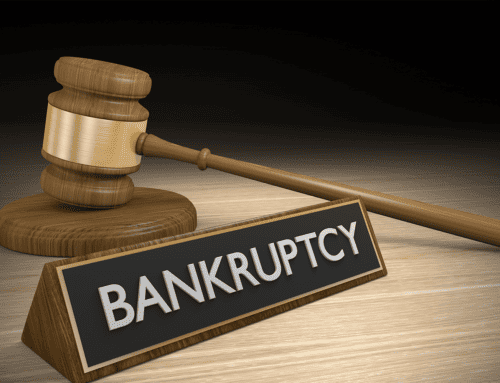According to data collected from the 2019 U.S. Census, Americans are in debt by an average of $90,460. Gen Xers have the highest amount of debt at an average of $135,84. Gen Z, which only comprises ages 18-23 in terms of their ability to obtain credit, has already racked up nearly $10,000 in debt, while millennials increased their debt load the most over the past five years. The year 2020, with its COVID-19 pandemic, is shaping up to be the year of debt, with many Americans maintaining their spending habits while obtaining financing to stay afloat. If you could benefit from filing bankruptcy and getting a fresh start, but you are afraid of doing so, here are some things you should know.
The Gap Between Debt and Bankruptcy
Your debt to income ratio tells you the amount of debt you have compared to your income. The higher the ratio, the more difficult it is to obtain credit and get out of debt. While the average American debt to ratio income is difficult to find, the Federal Reserve Bank of New York estimates that about 17 million Americans owe more than they own. With nearly 14 percent of U.S. households in such debt, but only one percent filing bankruptcy per year, that leaves a lot of Americans in a quandary, able to file bankruptcy but choosing not to or delaying the inevitable.
The Federal Reserve Bank of New York reported that bankruptcies declined in the second quarter of 2020 for the first time in 2014, but don’t be misled. Recall that courts shut down this year due to COVID-19. Additionally, stimulus checks, deferment on student loans, and rent and mortgage forbearance helped to bridge the gap between bankruptcy eligibility and filings for a short time. However, bankruptcies are expected to rise, and we won’t see the fallout from the pandemic for some time to come.
Why Waiting To File Can Cause More Harm Than Good
If you are one of the millions of Americans trying to stave off a bankruptcy filing, you should know a few things. First, draining your retirement in an attempt to stay afloat can put you in an even worse financial position if you are hit with early withdrawal fees and taxes, not to mention wiping out your retirement income. Further, it costs money to file bankruptcy, typically $1,500 to file. If you wait until you are in such dire straits that you cannot afford to file, you will be in an even worse position. Filing for bankruptcy can provide relief, and here is why.
You May Be Able to Keep What Is Important to You
Do you fear losing your home, car, or other property? You may be surprised to learn that you don’t have to lose everything you own simply because you file bankruptcy. When you file Chapter 7, the odds are that you can actually keep most or even all of your property. Filing Chapter 7 actually protects certain types of property, although the specific types of items and the extent to which they are recovered varies by state. Another option is to file Chapter 13, which falls under the reorganization of debt instead of liquidation of debt like a Chapter 7 bankruptcy filing.
You Don’t Have To Wait Ten Years To Obtain Credit After Filing
Bankruptcy can stay on your credit record for up to ten years. However, most debtors are able to re-establish credit soon after filing bankruptcies as credit card opportunities will be plentiful. With regards to home loans many financing institutions will lend money after four years. You can also take steps to repair and build new credit a few short months after filing by leveraging things like secured credit cards. Secured credit cards allow you to build credit without acquiring debt.
Relieve Your Anxiety
The decision to file bankruptcy is a big one. Debt can cause great anxiety, as can the fear of the unknown. But a bankruptcy filing can actually alleviate anxiety, protect you from collection calls, and allow you to rebuild with a fresh start. If you are struggling with debt, schedule an appointment with us to see if bankruptcy is right for you.






